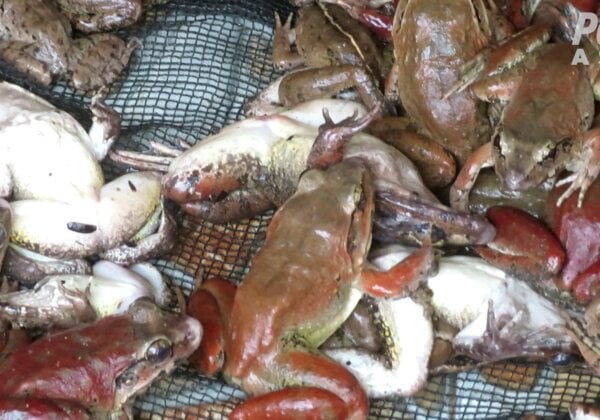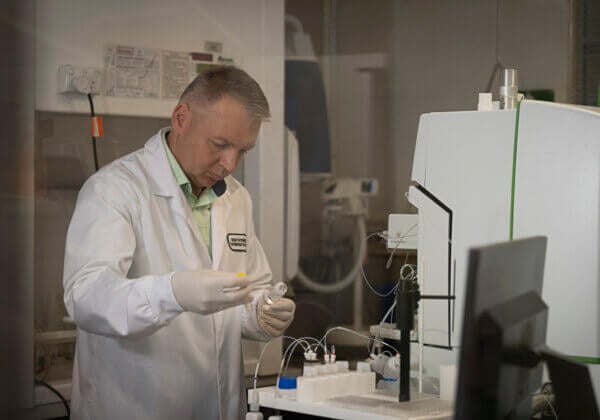Monumental Moment: The Netherlands Puts an End to Fur Farming
Kind people worldwide are celebrating the impending closure of fur farms in the Netherlands after the country’s Parliament voted overwhelmingly in favour of banning the breeding of minks – who go insane in hellish, filthy conditions that are breeding grounds for disease – by the end of this year. COVID-19 was recently transmitted from minks to humans on Dutch fur farms.
 Jo-Anne McArthur
Jo-Anne McArthur
This common-sense move follows appeals and protests by PETA Netherlands, local groups, and Party for the Animals demanding that the deadline for fur farm closures, which had been set for 2024, be brought forward. Allowing mink farms to maintain business as usual for nearly four more years – in the face of a global crisis stemming from animal exploitation – would have been inexcusable from the perspective of both the risk posed to humans and the harm inflicted on the minks themselves.
We hope countries yet to ban this vile industry will now see the writing on the wall, follow the Netherlands’ lead, and shut down cruel fur farms to avoid being the source of the next pandemic.
Fur Farms Are Breeding Grounds for Disease
Filthy fur farms packed with sick, stressed, and injured minks are breeding grounds for disease. The viruses that cause SARS and COVID-19 first infected humans who came into close contact with captive wildlife at live-animal markets – which represent a public health risk similar to that posed by fur farms.
The US Centers for Disease Control and Prevention warns that approximately 75% of recently emerging infectious diseases affecting humans originated in other animals.
As in the case of live-animal meat markets, on fur farms, minks and other animals killed for their skin are confined to cramped wire cages adjacent to one another, making it very easy for infectious diseases to spread through the exchange of urine, excrement, pus, and blood. Animals with infections, sores, and festering, open wounds caused by the wire flooring they stand on are a common sight. Fur farmers and handlers are among those who most commonly suffer from the zoonotic bacterial disease tularaemia.
Fur Farming Is Cruel
Humans have no right to imprison minks in barren cages for their entire lives. Unable to engage in natural behaviour, they often go mad from the confinement, and some even self-cannibalise, chewing on their own limbs or tails as a result of the constant psychological and physical torment. They’re killed in gruesome ways, including poisoning, gassing, drowning, or even being skinned alive.
Which Countries Have Banned Fur Farming?
Fur is dead, and the growing list of places where raising animals for their pelts is banned is proof. The Netherlands joins Belgium, Germany, Ireland, Luxemburg, Norway, Slovakia, the United Kingdom, and the many other countries that have said no to fur farming.
Will Australia be next?







